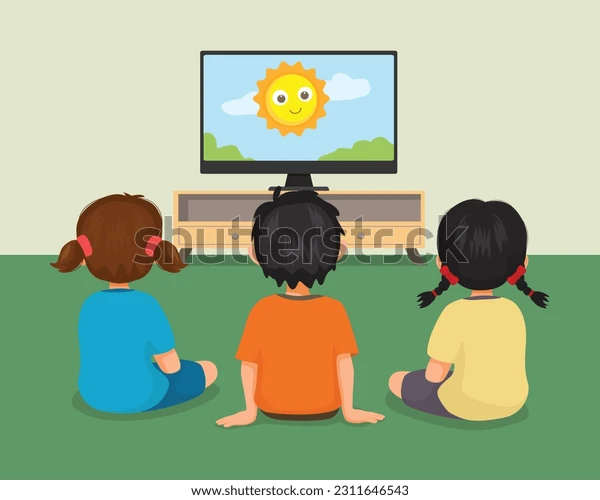
In today’s digital age, screens have become an inseparable part of daily life. From smartphones and tablets to televisions and gaming consoles, children are increasingly exposed to screen-based entertainment. While cartoons and video games can offer educational content and improve certain cognitive skills, prolonged exposure has raised serious concerns among parents, educators, and health professionals. This article delves into the physical, psychological, and developmental effects of long hours of screen engagement among children and offers guidance on responsible screen use.
- Physical Effects of Excessive Screen Time
a. Eye Strain and Vision Problems:
Staring at screens for extended periods can cause digital eye strain, also known as computer vision syndrome. Symptoms include dry eyes, blurred vision, and headaches. There is also growing evidence linking excessive screen time to myopia (nearsightedness) in children.
b. Poor Posture and Musculoskeletal Issues:
Children often hunch over devices or sit for long periods in positions that can harm spinal health, leading to poor posture, back pain, and neck strain. Lack of physical activity during screen time also contributes to weak muscle development and obesity.

2. Impact on Cognitive and Academic Development
a. Shortened Attention Span:
Cartoons and games, especially those with fast-paced and overstimulating visuals, can condition young brains to crave constant stimulation. This can result in decreased attention spans, making it difficult for children to concentrate in class or complete tasks that require sustained focus.
b. Reduced Academic Performance:
Studies have shown that children who spend more time on entertainment screens often perform worse academically. Time spent watching cartoons or playing games could otherwise be used for reading, homework, or engaging in creative play that stimulates brain development.
3. Psychological and Emotional Consequences
a. Behavioral Issues:
Prolonged exposure to violent or aggressive content in some video games and cartoons can increase aggression and desensitize children to real-world violence. It can also lead to imitation of inappropriate behavior seen on screen.
b. Emotional Dysregulation:
Excessive screen time can interfere with the development of emotional intelligence. Children may become more irritable, anxious, or prone to mood swings, especially when access to devices is restricted or during transitions away from screen time.
c. Sleep Disruptions:
The blue light emitted from screens suppresses melatonin production, a hormone that regulates sleep. Watching cartoons or playing games before bedtime can delay sleep onset, reduce sleep quality, and affect overall health and mood.
4. Social Development Challenges
Children who spend excessive time with screens may have fewer opportunities for face-to-face interactions. This can hinder the development of essential social skills like empathy, communication, and cooperation. It may also limit their ability to form meaningful relationships or engage in team-based activities.
5. The Role of Parents and Educators
a. Setting Boundaries:
Experts recommend that children aged 2–5 years should have no more than one hour of screen time per day, with content being age-appropriate and educational. For older children, screen time should be monitored and balanced with physical activity, sleep, and real-world social interaction.
b. Co-viewing and Co-playing:
Parents should watch cartoons and play games with their children when possible. This allows them to guide the child’s understanding, answer questions, and reinforce positive messages while discouraging negative behaviors.
c. Encouraging Alternatives:
Encouraging children to participate in outdoor play, hobbies, reading, and household activities can reduce dependency on screens and promote healthier development.
Also Read: Breaking the Cycle: Understanding Why Many Ghanaian Teachers Struggle Financially
Conclusion
While cartoons and video games are not inherently harmful, their overuse can have significant negative effects on children’s physical health, emotional well-being, and cognitive development. Striking a healthy balance between screen-based entertainment and real-life experiences is essential for raising well-rounded, resilient, and socially competent children. Parents, educators, and caregivers must work together to guide children’s screen use responsibly and thoughtfully.
Subscribe to our Facebook, WhatsApp and Telegram










Nambiir D. Grace
Good job 👏👏👏 my dear, very educative keep it up.